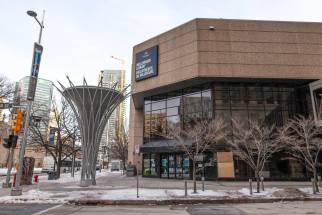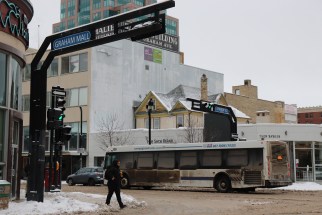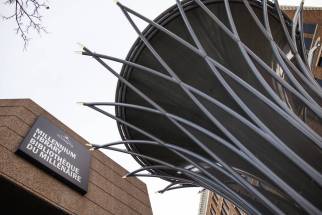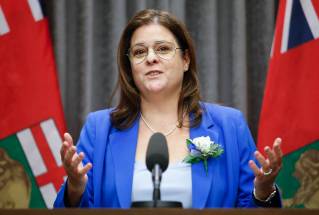Optimism in a syringe First doses of COVID-19 vaccine went into the arms of Manitoba health-care workers exactly two years ago
Read this article for free:
or
Already have an account? Log in here »
To continue reading, please subscribe:
Monthly Digital Subscription
$19 $0 for the first 4 weeks*
- Enjoy unlimited reading on winnipegfreepress.com
- Read the E-Edition, our digital replica newspaper
- Access News Break, our award-winning app
- Play interactive puzzles
*No charge for four weeks then billed as $19 plus GST every four weeks. Offer only available to new and qualified returning subscribers. Cancel any time.
Read unlimited articles for free today:
or
Already have an account? Log in here »
Hey there, time traveller!
This article was published 14/12/2022 (741 days ago), so information in it may no longer be current.
Dr. Brian Penner felt an overwhelming sense of privilege when he rolled up his sleeve and became the first Manitoban to get a COVID-19 vaccine dose.
Registered nurse Sherry Plett was filled with hope when she got her first shot of the Pfizer-BioNTech vaccine moments later in front of television cameras.
They were among the front-line health-care workers who made history two years ago Friday, when Manitoba launched a vaccination campaign that brought optimism in dark times.
Dr. Brian Penner, internal medicine, Health Sciences Centre, receives the first COVID-19 inoculation in Manitoba from public health nurse LoriAnn Laramee on Dec. 16, 2020. (John Woods / The Canadian Press files)
“I just felt very proud to be there, to represent my community and to portray to Manitobans and my colleagues that we can end this and we can overcome this pandemic,” said Plett.
She was the first nurse in Manitoba to get vaccinated at a time when the province was locked down in a bid to flatten a second wave of infections.
The first doses were administered to applause at the University of Manitoba’s Rady Faculty of Health Sciences shortly after 8:30 a.m. on Dec. 16, 2020.
Plett, who works in northern nursing stations and at Boundary Trails Health Centre near Morden and Winkler, still gets goosebumps when she reflects on the milestone day, which came nine months after Manitoba’s first confirmed case.
“When I got that jab, for me, it felt like the beginning of the end. I could see that happening,” the 61-year-old Morden resident said.
“When I got that jab, for me, it felt like the beginning of the end. I could see that happening.”–Sherry Plett
Now retired and living in B.C., Penner, 72, felt fortunate to be in a country that had access to vaccines that would make him safer for his family, colleagues and patients.
“I feel unbelievably lucky, and these thoughts were going through my head, that someone spent a hell of a lot of money to train me to do what I love doing, which is being a physician,” said Penner, who was an internal medicine specialist at Health Sciences Centre.
Working in intensive and emergent care, Plett saw it as an opportunity to educate people who were opposed or hesitant to get a shot.
She saw the divide in the Rural Municipality of Stanley and Winkler, where uptake was low.
“It meant I could, hopefully, teach the community, so somehow they could see this was not a fearful thing,” she said.
Dr. Brian Sharkey, a family and urgent-care physician, was the third person to be vaccinated by public health nurse Lori Ann Laramee during the media event.
They saw first-hand how COVID-19 was affecting patients and the health-care system, when a lot less was known about the virus.
By then, face masks, social distancing and other precautions had become part of life.
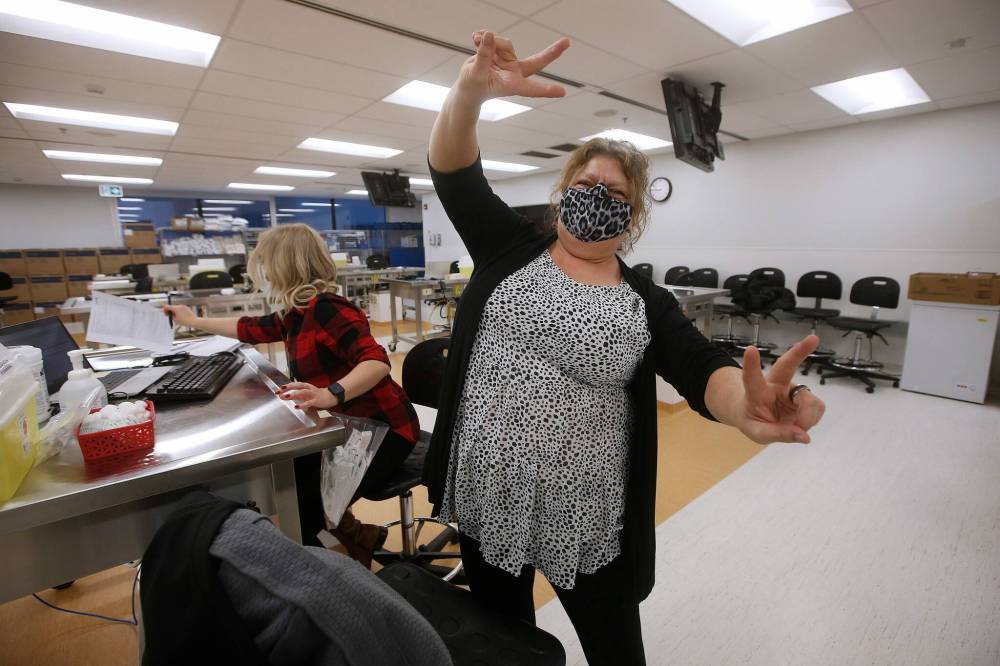
Vaccines, which are designed to reduce the likelihood of serious illness, hospitalization and death, were seen as a possible way out.
Some people wrongly expected them to be a cure, said Plett.
In Manitoba, the first shots were offered to the highest-priority group of health-care workers, including staff in immunization clinics and critical-care facilities.
Penner, Plett and Sharkey were invited to go first after registering. The latter two suggested Penner go ahead of them because he had a clinic to run that morning.
“How I was chosen to go first was very serendipitous,” he said.
The joy in the room was followed hours later by an announcement of 15 more deaths and an additional 292 confirmed cases of COVID-19, while hospital resources were being strained.
The pandemic — far from finished then — continues today, although the world is in a much different place due to vaccines and other factors.
Following the lead of others, Manitoba’s government made the decision to live with the disease when it lifted all remaining restrictions in March.
While life goes on for many, the virus still poses a threat, especially to those who are at higher risk of severe outcomes or death.
In late 2020 and through 2021, most Manitobans were willing and eager to roll up their sleeves to get vaccinated.
“It was quite hopeful, and it was our first way to fight back against the pandemic,” Dr. Brent Roussin, the chief provincial public health officer, said of the campaign’s early days.
“It was quite hopeful, and it was our first way to fight back against the pandemic.”–Dr. Brent Roussin
Uptake has slowed this year, despite the province and health-care providers encouraging people to keep their COVID-19 and influenza vaccinations up to date.
Roussin said it reflects an evolving virus and a shift in how the world is approaching the pandemic.
COVID-19 affected every aspect of Manitobans’ lives at the beginning of the crisis, so rapid and high uptake was to be expected, he said.
Roussin expected uptake to decrease as that changed and restrictions ended. Proof of vaccination is no longer required to enter most public places, he noted.
He suspects the lag also has to do with the timing of previous doses or positive test results.
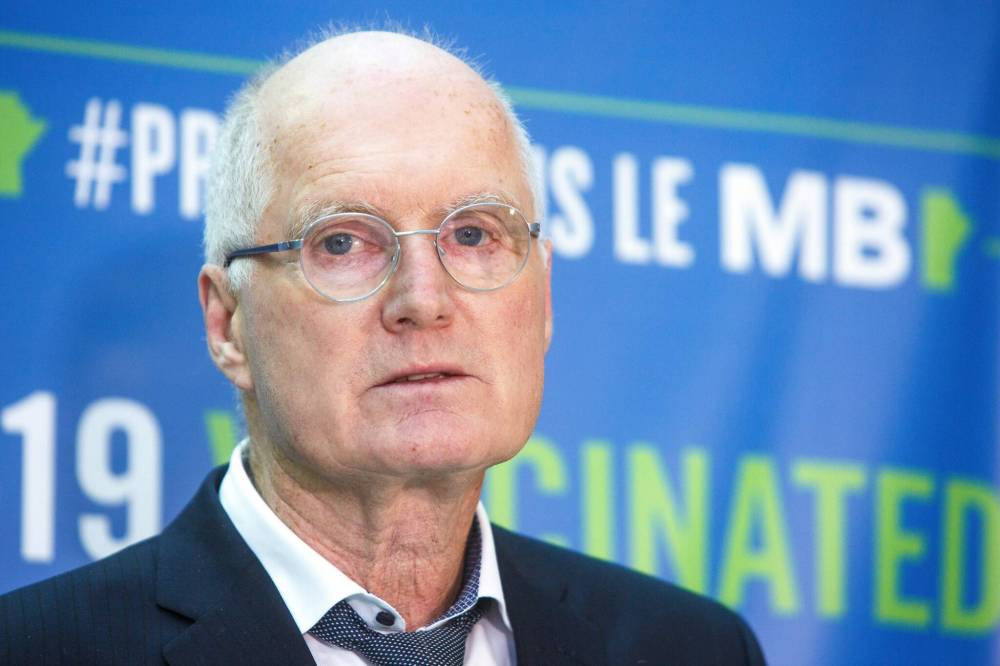
Manitoba recommends people wait six months from their last shot or infection before getting a booster.
COVID-19 isn’t having the same impact as it was previously, said Roussin, and that might be changing some people’s risk perception.
Omicron, while very infectious, is less severe than other variants of the virus, he noted.
The province was accused of taking away Manitobans’s ability to assess personal risk, when it scaled back testing and halted daily virus and vaccine data updates earlier this year.
Manitoba Health now provides weekly surveillance reports, with less detail, for COVID-19 and influenza.
The latest data — for the week up to Dec. 3 — suggests COVID-19 activity is decreasing in Manitoba, while flu numbers are high.
A total of 78 per cent of eligible Manitobans have had at least two doses of COVID-19 vaccines, while 20 per cent have received a dose in the last six months.
Just under 15 per cent have had a new bivalent booster, which is designed to protect against the original and Omicron strains.
Nationally, 80.5 per cent of eligible Canadians have had two shots, and 23 per cent have had a dose in the last six months.
In Manitoba, uptake is lowest in child age groups and highest among older people, who are at greater risk of serious illness.
“We would like to see these numbers climb,” said Roussin.
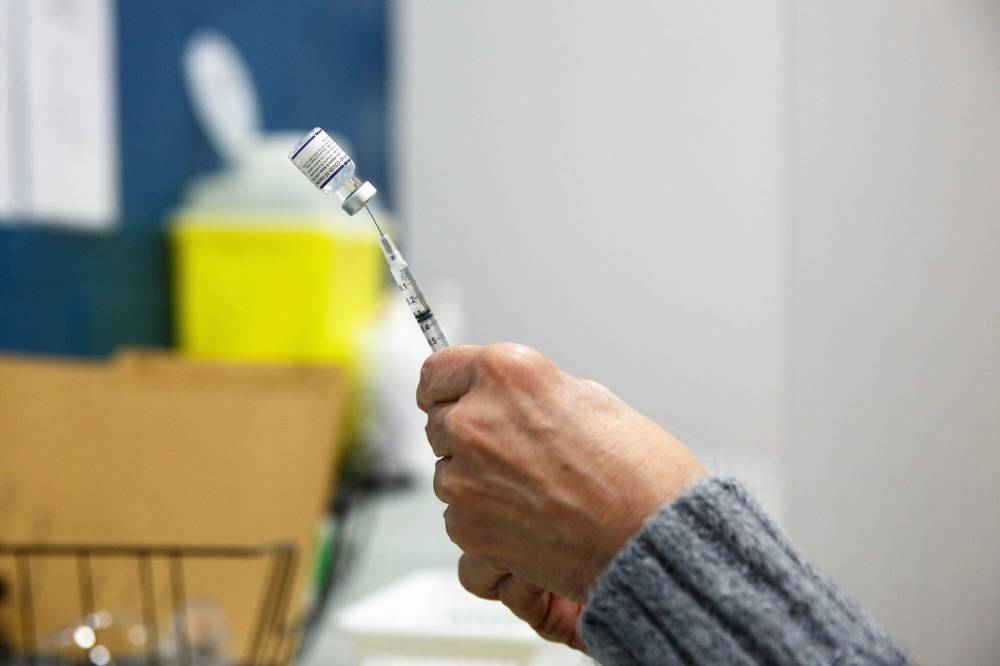
Nine per cent of kids between six months and four years have had at least one vaccine dose. All children in that group have been eligible for their first shot since August.
Thomas Linner, provincial director of the Manitoba Health Coalition, said governments around the world have “moved on” from COVID-19 as a public issue, even though the pandemic isn’t over.
This has affected people’s readiness to get their shots, and it could be problematic if and when new variants emerge, he said.
Citing an increase in immune-evasive variants, Canada’s chief public health officer, Dr. Theresa Tam, on Wednesday urged people to keep their guard up.
“In Canada, variations in population level of immunity and current global trends suggest that an uptick in COVID-19 could occur in the new year,” she said.
Linner said pandemic fatigue and the spread of false information have also discouraged people from getting their first doses or booster shots.
“It’s pretty safe to say, (uptake) is not what we would like it to be,” he said. “The uptake has slowed down considerably.”
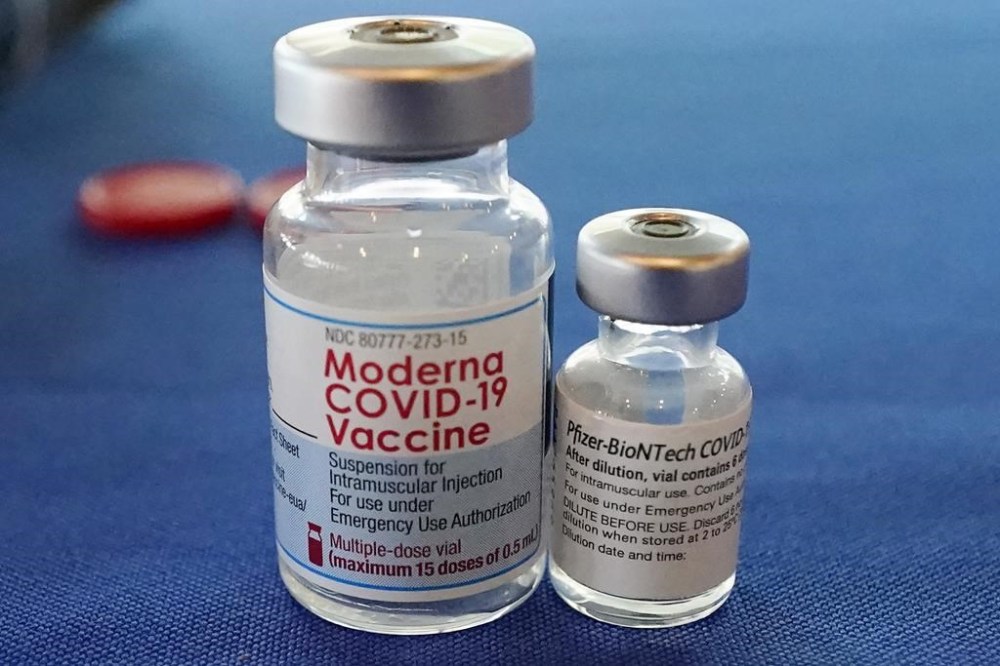
Roussin acknowledged misinformation has been a problem.
“One of the great harms is the division it caused,” he said, adding it can be countered by sharing as much reliable information as possible and, for health-care staff, listening to and trying to address people’s concerns.
“These vaccines are still one of the best ways to protect yourself against influenza and COVID,” he said.
This week, the province said vaccination should be part of people’s planning for holiday gatherings and celebrations.
Penner and Plett shared a similar plea.
“I would encourage it not because I’m a physician, but as a person who wants to see us as a healthier society,” said Penner, who received his fifth dose a little over a month ago.
“My message would be vaccines are safe and effective, and they do provide strong protection against serious illness,” said Plett. “They help prevent hospitalization and death.”
“My message would be vaccines are safe and effective, and they do provide strong protection against serious illness,… They help prevent hospitalization and death.”–Sherry Plett
She is waiting to get her fourth shot, after a recent COVID-19 infection.
“I could not imagine getting COVID without the vaccine. That would be very difficult,” she said.
Serious reactions to vaccines are very rare, according to adverse-event data on the federal government’s website.
There have been 389 reports of a death following vaccination out of about 85 million doses.
“Although these deaths occurred after being vaccinated with a COVID-19 vaccine, they are not necessarily related to the vaccine,” Canada’s website states.
A total of 98 deaths were unlikely caused by the vaccine, and 142 were “unclassifiable” due to a lack of information, according to Ottawa.
A further 105 could not be assessed due to missing information, and 44 reports were “indeterminate” because of conflicting or insufficient definitive evidence.
chris.kitching@freepress.mb.ca
Twitter: @chriskitching
Chris Kitching
Reporter
As a general assignment reporter, Chris covers a little bit of everything for the Free Press.
Our newsroom depends on a growing audience of readers to power our journalism. If you are not a paid reader, please consider becoming a subscriber.
Our newsroom depends on its audience of readers to power our journalism. Thank you for your support.






